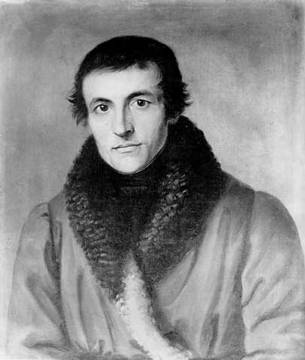Related Research Articles

Johann Adam Möhler was a German Roman Catholic theologian and priest associated with the Catholic Tübingen school.

Albert Stöckl was a German neo-scholastic philosopher and theologian.

Franz Xaver Dieringer was a Catholic theologian. He was a professor of dogma and homiletics at the University of Bonn.
Max Müller was a German philosopher and influential post–World War II Catholic intellectual. Müller was Professor at the University of Freiburg and the Ludwig Maximilian University of Munich.
Pius Bonifacius Gams was a German Benedictine ecclesiastical historian.
Franz Xaver Kraus was a German Catholic priest, and ecclesiastical and art historian.

Matthias Joseph Scheeben was a German Catholic theological writer and mystic. "The generations that followed Scheeben regarded him as one of the greatest minds of modern Catholic theology."
Franz Jacob Clemens was a German Catholic philosopher, a layman who defended the Catholic Church even on theological questions.

Johannes Evangelist von Kuhn was a German Catholic theologian. With Franz Anton Staudenmaier he occupied the foremost rank among the speculative dogmatists of the Catholic Tübingen school.

Franz Hettinger was a German Catholic theologian.
Constantine von Schäzler was a German Jesuit theologian.

Martin of Cochem was a German Capuchin theologian, preacher, and ascetic writer.
Christian Peter "Alphons" Maria Joseph Bellesheim was a church historian. He also reviewed and collected books.
Otto Friedrich Bollnow was a German philosopher and teacher.
Wolfgang Achtner was a theologist who played a key role as an ambassador for the science-and-religion dialogue in Germany.
Ingolf Ulrich Dalferth is a philosopher of religion and theologian. His work is regarded as being on the methodological borderlines between analytic philosophy, hermeneutics and phenomenology, and he is a recognized expert in issues of contemporary philosophy, philosophy of religion, and philosophy of orientation.

Michael Bordt SJ is a German philosopher and academic. He is a professor at the Munich School of Philosophy and specialized in the area of ancient philosophy, especially Plato and Aristotle. Since 2011 he has been the chair of the Institute of Philosophy and Leadership at Munich.
Harald Holz is a German philosopher, logician, mathematician (autodidact), poet and novelist.
Bernd Jochen Hilberath is a German Roman Catholic theologian.
Johann Baptist Lüft was a German Catholic theologian, known for his contributions made to the Catholic elementary school system in Hesse.
References
- 1 2 3 Hinze, Bradford E., "Tracing Trinity in Tradition: The Achievement of Franz Anton Staudenmaier", Journal for the History of Modern Theology, Vol.8, No.1, 10 January 2010
- 1 2 3 Lauchert, Friedrich. "Franz Anton Staudenmaier." The Catholic Encyclopedia Vol. 14. New York: Robert Appleton Company, 1912. 20 January 2021
 This article incorporates text from this source, which is in the public domain .
This article incorporates text from this source, which is in the public domain . - ↑ Holzem, Andreas, "Staudenmaier, Franz Anton", Religion Past and Present. 2006 ISBN 9789004146662
![]() This article incorporates text from a publication now in the public domain : Herbermann, Charles, ed. (1913). "Franz Anton Staudenmaier". Catholic Encyclopedia . New York: Robert Appleton Company.
This article incorporates text from a publication now in the public domain : Herbermann, Charles, ed. (1913). "Franz Anton Staudenmaier". Catholic Encyclopedia . New York: Robert Appleton Company.